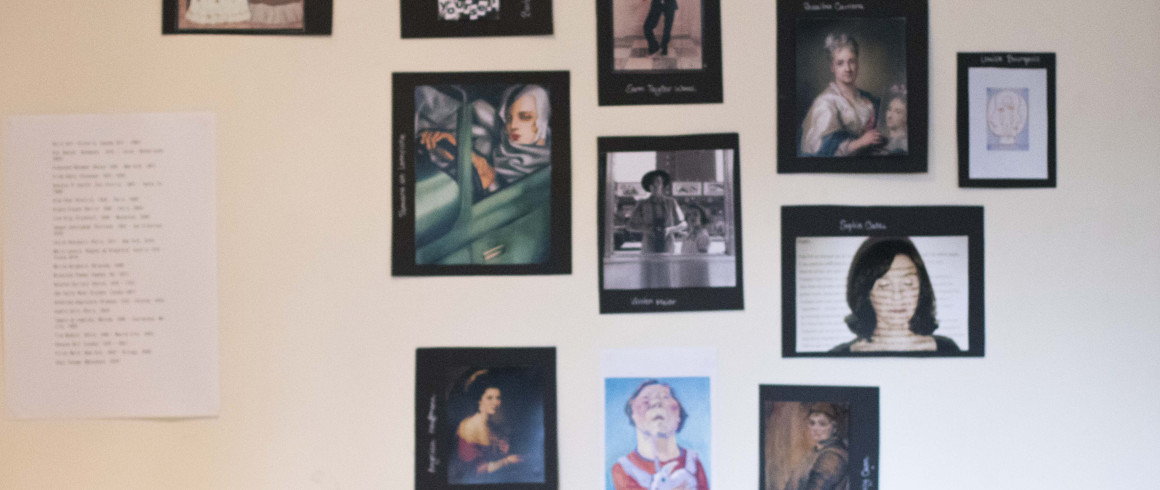Art and the Self: “I am my own Muse”
We’ve talked about women in Science, but what about women in Art? PhD student Nicole Maniero (2017) curated a mini exhibition of artists’ self-portraits for International Women’s Day.
“I am my own Muse”. Frida Kahlo’s famous quote inspired Nicole to explore the complex relationship between artists and their identities and bodies, and the ways we as viewers engage with self-portraits. A literature student researching representation of objects in Italian stories, Nicole previously wrote a dissertation on Frida Kahlo.
“I think she had the courage as a woman to no longer look for something outside of herself, but rather to take herself as the best example of the art she wanted to pursue. I found that many women who weren’t acknowledged as artists took themselves as the starting point for their production.”
Self-representation, Nicole argues, has its advantages and disadvantages. The balance between self-image and others’ perspectives can lead to tensions in how artists – and writers – portray themselves, as can the fact that our identities are never simple.
“Self-representation is problematic because you are different people at the same time. In Frida’s case she had a really troubled life both psychologically and physically, because she had a really bad accident that compromised her body, and her mobility. I think it’s problematic because you see yourself from outside sometimes, and representing that kind of image of yourself that you have can be difficult. It’s a search of artists and writers always undertake I think.”
Nicole also included artists such as Cindy Sherman – known for embracing the multiplicity of her own identity – and Italian artist Artemisia Gentileschi. Described as “more savage the Carvaggio”, she succeeded as an artist at a time when female artists were not accepted in the art world, and placed herself, and her vision of herself, into her art. Nicole’s interest in Gentileschi is in the intersection of art and literature:
“I was interested in her not because of her art, but because of the literary translation of her art. There was a really interesting Italian female author who wrote a fictionalisation of this artist’s life, and that’s how I encountered her.”
Self-representation is, after all, not only a task for artists but also for writers. A writers’ tools offer different ways of exploring the facets of one’s identity, and expression tensions between an internal and external idea of the self:
“In my current research I’m not specifically looking at female writers, but I’ve encountered a couple of them and one of my loves is Virginia Woolf. I find her way of depicting herself really interesting. A really interesting comparison can be drawn between her and contemporary writers like Marguerite Duras, because I think in the text for example one of the interesting phenomena that takes place is that the pronoun used to indicate the subject can shift. It can be first person, or third person, there is this alienation of the subject from herself. Female artists, in the examples I’m drawing upon, have this superposition of seeing themselves from outside and living the experience that they’re recounting. This takes us back to the issue of self-representation, because there is always this contrast between the way you feel, and see yourself, and the way you think you are perceived from outside. I find the textual evidence really interesting.”
Ultimately, no one can understand an artists’ identity as well as the artist, but how might we seek to engage with these self-portraits – without an art historian’s understanding of the artist and their work?
“I think what really matters, at the end of the day, is that we accept these representations as part of a complex identity, and that’s it. What really matters is being open enough to accept these different masks, different identities that we can take on. Openness is the key to approaching these works.”
An exhibition of personal artefacts belonging to Frida Kahlo will be opening at the V&A on Saturday 16th June

